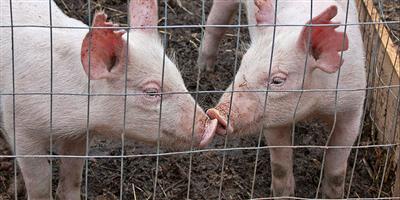Seneca virus A/Seneca Valley Virus (SVV) is a non-enveloped single-stranded ribonucleic acid (RNA) virus of the family Picornaviradae. Foot and Mouth Disease (FMD) and swine vesicular disease virus (SVDV) are members of the same viral family. All three diseases have similar clinical presentations. SVV is a low consequence disease, and animals can be sent to market once lesions have healed. However, given the similarities to FMD, any cases that are present with snout or coronary band vesicles are investigated as a Foreign Animal Disease (FAD) to rule out FMD infection.
A Montana isowean swine facility in northcentral Montana recently underwent a FAD investigation for vesicular lesions and was determined to be SVV infected. The facility’s three-week-old weanlings developed diarrhea and increased mortality. Extensive testing for common pathogens was negative, so samples were tested and confirmed for SVV.
As part of the on-farm disease management, the facility fed the sow herd an intestinal homogenate from the deceased piglets to provide immune stimulation and support immunity in the sows.
The sows began developing vesicles on the snout and feet within a few days of ingesting the homogenate. The sows also were stiff, painful, feverish, lethargic, not eating well, and three died. It is suspected that the high viral load experienced by the sows led to the severity of their symptoms. SVV is often clinically described as healthy pigs with vesicles. The piglets and the sows followed the typical presentation of clinical signs, and there was a high suspicion that the sows were also infected with SVV. The sows were negative for FMD, African Swine Fever (ASF) and Classical Swine Fever (CSF).
Because of the similarities to FADs, swine with vesicular lesions must be reported to the Department of Livestock (DOL) immediately at the 24-7 phone line 406-444-2976. Vesicular diseases cannot be reliably differentiated without appropriate diagnostic testing. A FAD in North America would disrupt animal movements and commerce. It is crucial to monitor for vesicular lesions in your swine patients and report abnormalities for rapid identification and control.
###
Animal Health Bureau-Montana Department of Livestock


